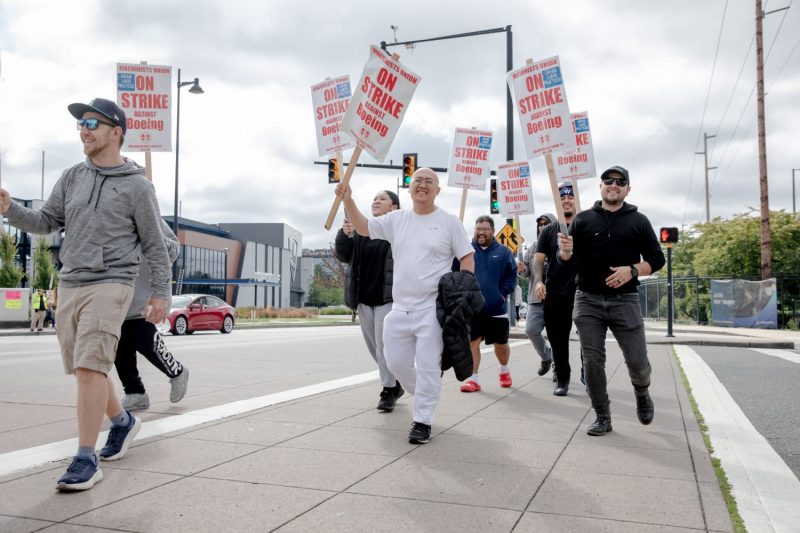
Boeing Initiates Massive Employee Furloughs During Machinist Strike
Boeing Starts Furloughing Tens of Thousands of Employees Amid Machinist Strike
The recent announcement by Boeing to furlough tens of thousands of employees has sent shockwaves through the aerospace industry. The decision comes in the midst of a machinist strike that has disrupted production at several key manufacturing facilities. This move by Boeing reflects the challenges facing the company as it navigates a tumultuous period characterized by labor disputes, supply chain disruptions, and fluctuating demand.
The furloughs will have significant implications for both the affected employees and the wider aerospace sector. For the workers facing temporary layoffs, uncertainty looms over their financial stability and job security. Many of them have dedicated years of service to Boeing, only to find themselves sidelined due to circumstances beyond their control. The economic impact of these furloughs will be felt not just by the employees themselves, but also by their families and communities.
At the same time, the furloughs could have far-reaching repercussions for Boeing’s operations and reputation. With a large number of skilled workers sidelined, the company may struggle to meet production targets and fulfill customer orders in a timely manner. This could potentially result in delays, increased costs, and damage to Boeing’s relationships with its clients. Moreover, the negative publicity surrounding the furloughs could tarnish Boeing’s image as a reliable and stable employer.
The timing of the furloughs is also significant, coming at a time when the aerospace industry is grappling with broader challenges. The ongoing machinist strike has highlighted the tensions between labor and management within Boeing, underscoring the need for greater dialogue and compromise. In addition, the industry as a whole is facing headwinds from factors such as geopolitical instability, environmental concerns, and technological disruption.
In response to these challenges, Boeing will need to adopt a strategic approach to managing its workforce and operations. This may involve seeking alternative ways to address the issues raised by the machinist strike, such as improving working conditions, enhancing employee engagement, and fostering a culture of collaboration and innovation. By fostering a more inclusive and cooperative workplace environment, Boeing can mitigate the risk of future labor disputes and enhance its long-term competitiveness.
Overall, the furloughing of tens of thousands of employees by Boeing amid the machinist strike represents a critical juncture for the company and the aerospace industry as a whole. How Boeing navigates this challenging period will not only impact its immediate operations and workforce, but will also shape its reputation, relationships, and future prospects in a rapidly evolving and competitive market. As stakeholders monitor the unfolding developments at Boeing, there is a collective hope for a swift resolution that safeguards the interests of employees, customers, and shareholders alike.
